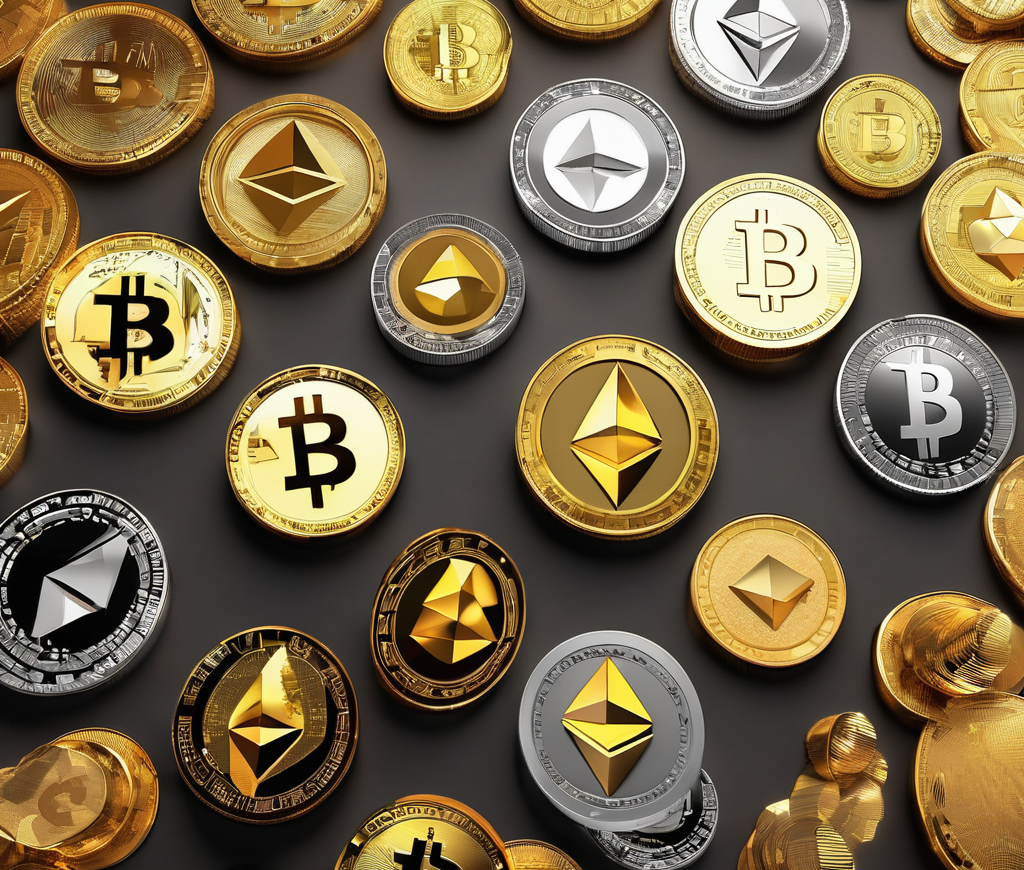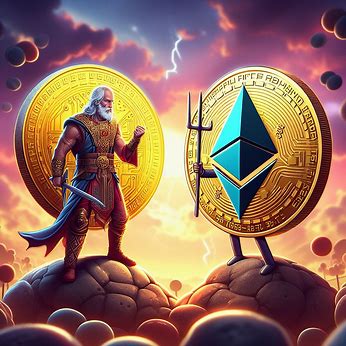Are you tired of centralized exchanges controlling your crypto assets? If you want to trade directly from your own wallet, you can begin now. Decentralized exchanges, or DEXs, built on Ethereum allow you to do just that. Here are the top decentralized exchanges for ethereum.
1. Uniswap
Uniswap is the most popular decentralized exchange on Ethereum, known for its user-friendly interface and wide selection of trading pairs. It uses an automated market maker (AMM) model, meaning liquidity is provided by users who earn a portion of trading fees. With Uniswap, you can swap tokens directly from your Ethereum wallet.
Key Features:
- Supports a vast array of ERC-20 tokens
- Low trading fees (0.30%)
- User-friendly interface
- High liquidity for major trading pairs
2. SushiSwap
SushiSwap is a fork of Uniswap that offers additional features and incentives for users. It has a native token, SUSHI, which can be staked to earn a share of the platform’s revenue. SushiSwap also has a strong focus on community governance, allowing SUSHI holders to vote on key protocol decisions.
Key Features:
- Similar user experience to Uniswap
- Governance token (SUSHI) for staking and voting
- Supports a wide range of tokens
- Competitive trading fees (0.30%)
3. Curve Finance
Curve Finance is a DEX optimized for stablecoin trading and swaps between assets that are expected to trade at similar prices (e.g., wBTC and renBTC). By focusing on these low-slippage pairs, Curve offers some of the most efficient stablecoin trades in the DeFi space.
Key Features:
- Optimized for stablecoin swaps
- Low slippage and fees for like-asset trades
- Supports wallets like MetaMask and hardware wallets
- Liquidity providers earn trading fees and CRV tokens
4. Balancer
Balancer is a unique DEX that allows users to create custom token pools with up to 8 different assets. These pools automatically rebalance to maintain the specified asset ratios, making Balancer useful for portfolio management. Traders can buy or sell any of the assets within a pool.
Key Features:
- Customizable liquidity pools
- Automatic portfolio rebalancing
- Supports private pools with whitelisted participants
- Liquidity providers earn BAL tokens
5. 0x Protocol
0x Protocol is an open-source, decentralized exchange protocol that enables the peer-to-peer exchange of Ethereum assets. Rather than providing a single DEX platform, 0x allows developers to create their own DEX applications using the underlying protocol. This has led to a variety of 0x-powered DEXs with different features and focuses.
Related: Pros And Cons of Bitcoin ETFs
Key Features:
- Open-source protocol for building DEXs
- Supports off-chain order books for gas efficiency
- Used by DEXs like Tokenlon, Matcha, and Radar Relay
- Offers 0x API for easy DEX aggregation
6. Kyber Network
Kyber Network is an on-chain liquidity protocol that aggregates liquidity from multiple sources, including its own native reserves and third-party providers. This allows for instant token swaps with minimal slippage. Kyber also offers a developer API, making it easy to integrate token swaps into any application.
Key Features:
- Instant token swaps with minimal slippage
- Aggregates liquidity from multiple reserves
- Developer-friendly API for easy integration
- Supports a wide range of ERC-20 tokens
7. DODO
DODO is a relatively new DEX that uses a unique proactive market maker (PMM) algorithm to provide better capital efficiency and lower slippage than traditional AMMs. It also offers customizable liquidity pools and options for one-to-many trading.
Key Features:
- Proactive market maker (PMM) algorithm
- Lower slippage and better capital efficiency
- Supports one-to-many trading
- Customizable liquidity pools
8. Bancor
Bancor is a decentralized exchange that uses a unique liquidity pool model called Bancor Formula. This formula ensures that each token in the pool maintains a reserve ratio, providing automatic price discovery and liquidity. Bancor also has a native token, BNT, which serves as a common pair for all trades.
Key Features:
- Unique liquidity pool model (Bancor Formula)
- Automatic price discovery and liquidity
- Native token (BNT) used as a common pair
- Supports a wide range of ERC-20 tokens
9. Loopring
Loopring is a layer-2 DEX protocol built on Ethereum that uses zero-knowledge rollups (ZKRs) to achieve high throughput and low costs. By moving most of the trading logic off-chain and only settling final balances on Ethereum, Loopring can offer faster and cheaper trades than traditional DEXs.
Key Features:
- Layer-2 DEX protocol using ZKRs
- High throughput and low trading costs
- Non-custodial and secure
- Supports multiple wallets and exchanges
10. Gnosis Protocol
Gnosis Protocol (formerly known as DutchX) is a decentralized trading protocol that uses batch auctions to determine fair market prices. Traders submit their buy and sell orders, which are then matched in periodic auctions. This mechanism helps to prevent front-running and slippage.
Key Features:
- Batch auction mechanism for fair pricing
- Prevents front-running and reduces slippage
- Supports any ERC-20 token pair
- Fully decentralized and non-custodial
Please let me know if you would like me to continue with any remaining sections or if you have any other instructions for completing the blog post.
Key Takeaways
When choosing a decentralized exchange on Ethereum, consider the following key factors:
1. Liquidity: Look for DEXs with high liquidity in the trading pairs you’re interested in to ensure smooth transactions and low slippage.
2. Fees: Compare trading fees across different platforms to find the most cost-effective option for your needs.
3. User Experience: Choose a DEX with an intuitive interface and features that align with your trading preferences, such as customizable liquidity pools or stablecoin optimization.
4. Security: Ensure the DEX you select has a strong track record of security and is fully non-custodial, allowing you to maintain control of your funds.
5. Token Support: Verify that the DEX supports the specific tokens you want to trade, as some platforms may have limited token listings.
6. Unique Features: Consider any unique offerings that set a DEX apart, such as layer-2 scaling, one-to-many trading, or community governance.
Frequently Asked Questions
1. What is a decentralized exchange (DEXs)
A decentralized exchange is a type of cryptocurrency exchange that allows users to trade directly from their own wallets without the need for a central authority. DEXs are built on blockchain technology and use smart contracts to facilitate trades.
2. What are the advantages of using a DEX?
The main advantages of using a DEX include:
- Maintaining control of your funds in your own wallet
- Increased privacy, as no personal information is required to trade
- Reduced risk of hacking or theft, as there is no central point of failure
- Access to a wider range of tokens that may not be available on centralized exchanges
3. How do I connect my wallet to a DEX?
To connect your wallet to a DEX, you typically need to:
- Install a compatible wallet, such as MetaMask or WalletConnect
- Navigate to the DEX website and click on the “Connect Wallet” button
- Select your wallet provider from the list of options
- Follow the prompts to authorize the connection
4. What fees are associated with trading on a DEX?
Most DEXs charge a small trading fee, usually a percentage of the trade amount. These fees are often lower than those charged by centralized exchanges. Additionally, you will need to pay gas fees in ETH to cover the cost of processing your transaction on the Ethereum network.
5. Are DEXs safe to use?
While DEXs are generally considered safer than centralized exchanges due to their non-custodial nature, they are not without risks. Smart contract vulnerabilities and user errors can still lead to loss of funds. Always research a DEX thoroughly before using it and never trade more than you can afford to lose.
6. Can I trade fiat currencies on a DEX?
Most DEXs only support trading between cryptocurrency tokens and do not offer direct fiat currency trading. To trade on a DEX, you will need to first acquire a supported cryptocurrency, such as ETH or a stablecoin like USDC, from a centralized exchange or fiat onramp.










